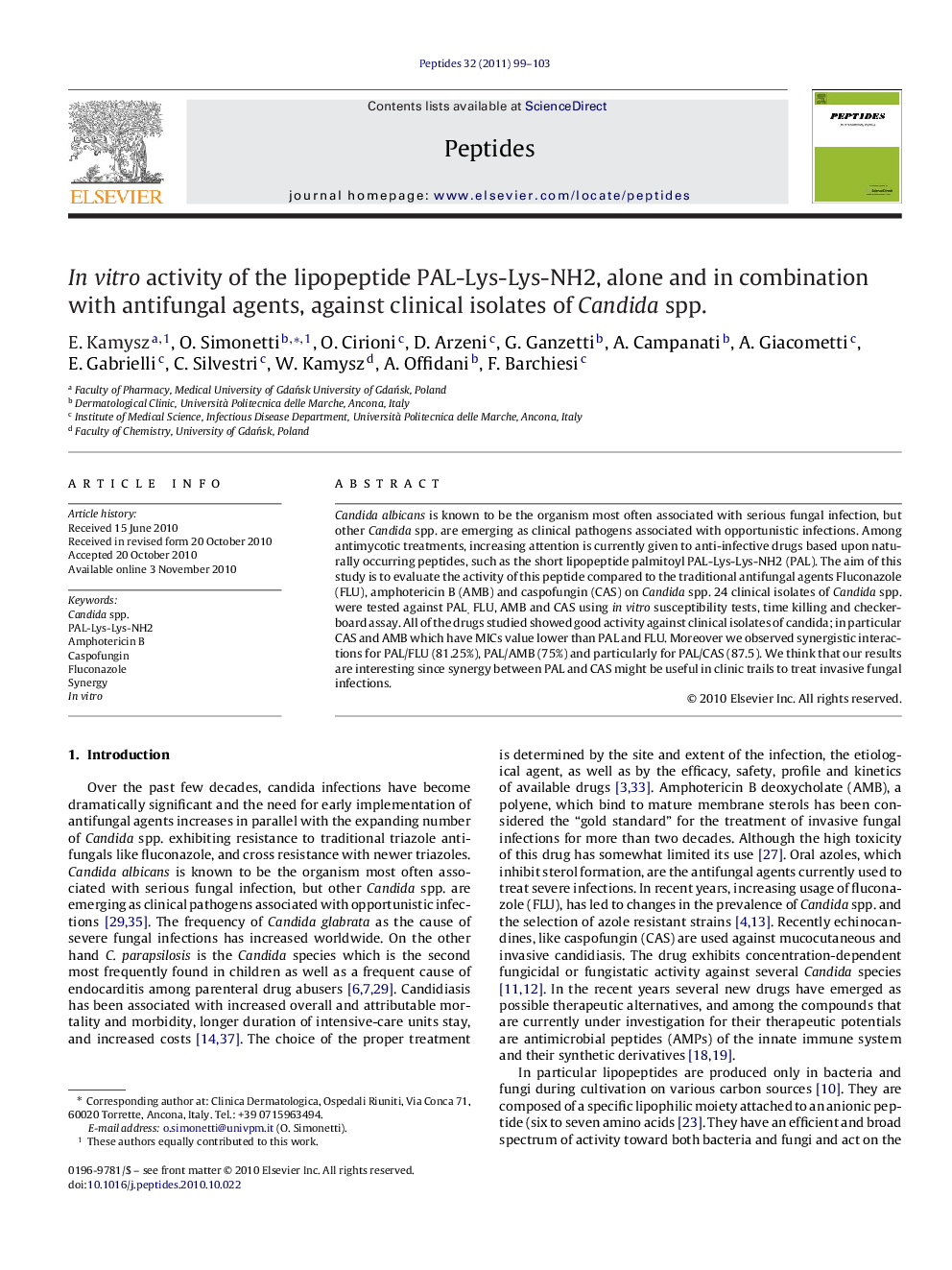| Article ID | Journal | Published Year | Pages | File Type |
|---|---|---|---|---|
| 2006508 | Peptides | 2011 | 5 Pages |
Candida albicans is known to be the organism most often associated with serious fungal infection, but other Candida spp. are emerging as clinical pathogens associated with opportunistic infections. Among antimycotic treatments, increasing attention is currently given to anti-infective drugs based upon naturally occurring peptides, such as the short lipopeptide palmitoyl PAL-Lys-Lys-NH2 (PAL). The aim of this study is to evaluate the activity of this peptide compared to the traditional antifungal agents Fluconazole (FLU), amphotericin B (AMB) and caspofungin (CAS) on Candida spp. 24 clinical isolates of Candida spp. were tested against PAL, FLU, AMB and CAS using in vitro susceptibility tests, time killing and checkerboard assay. All of the drugs studied showed good activity against clinical isolates of candida; in particular CAS and AMB which have MICs value lower than PAL and FLU. Moreover we observed synergistic interactions for PAL/FLU (81.25%), PAL/AMB (75%) and particularly for PAL/CAS (87.5). We think that our results are interesting since synergy between PAL and CAS might be useful in clinic trails to treat invasive fungal infections.
Research highlights▶ We think that our results are interesting since synergy between PAL and CAS might be useful in clinic trails to treat invasive fungal infections.
